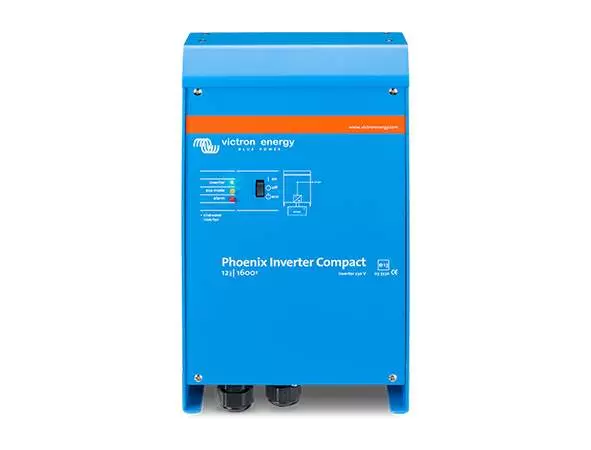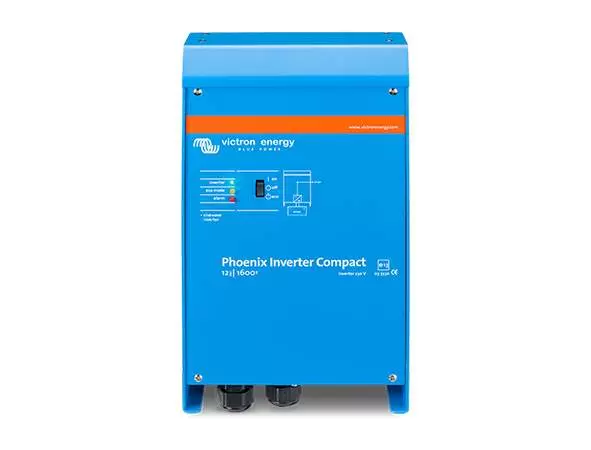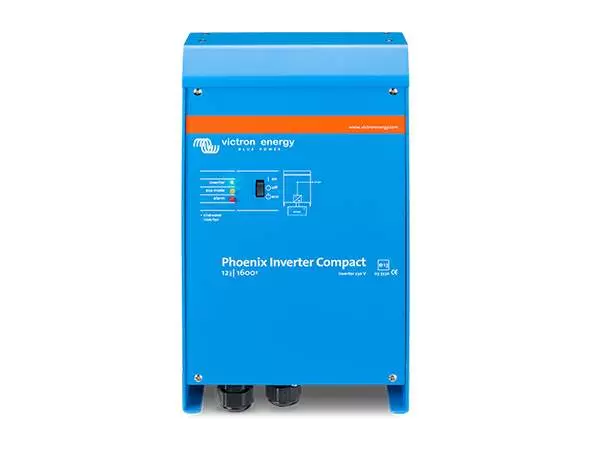Solar Panel and Inverter is an excellent choice for the average homeowner. If you’re considering getting solar panels, you may have many questions and concerns about how they work and what to expect. This article will explore the benefits of using solar energy in your home. We’ll also answer some common questions about these systems so that you can make an informed decision about whether or not installing solar power is suitable for your situation.
Using Solar Panel and Inverter
When you’re looking to invest in Solar Panel and Inverter, it’s essential to be informed about how they work. Solar panels are made from various materials, including glass and silicon. They can be installed on your roof or ground-mounted on a pole. Solar panels are connected to the grid through an inverter. Which converts the electricity generated by solar power into AC that’s compatible with home appliances and other devices.
Solar Panel And Inverter connect directly to your home through an electrical cable called MC4 connectors that allow you to safely secure them without having exposed wires on either side of the connection point (which could cause fires). Your batteries then store this AC as DC until they’re ready to use it again—no more paying for electricity bills!
The Popularity of Solar Panel and Inverter Power
The popularity of Solar Panel and Inverter power is growing day by day. This is because it is one of the most efficient ways to generate and store electricity. Solar panels have become more affordable than ever, and they are now available in various shapes and sizes. Some people choose to install their solar panels, while others prefer to hire a professional installer for their projects.
As you may already know, many different energy sources exist, including coal, natural gas, nuclear reactors, hydroelectric plants etc. Still, none of these can compare with the benefits of using solar panel technology.

Solar Power vs. Grid Power
Here’s how you can make the most out of your Solar Panel and Inverter:
- Solar power is cheaper than grid power.
- Grid power isn’t always available, but solar power is always available.
- Grid power is not renewable, but solar energy from panels can be used repeatedly.
- The electricity generated by your home Solar Panel and Inverter system will be more reliable. Then the electricity is supplied by a utility company. Because it’s produced at your own house rather than being transmitted over long distances in high voltage lines, storms or other causes can damage it.
Money-Saving Benefits
- Solar Panel and Inverter is a good investment.
- They can save you money on your energy bill.
- They can save you money on your property taxes.
- They can save you money on your insurance premiums.
Dependent on the Sun
Solar Panel and Inverter power is a renewable energy source, which means they can be used repeatedly. Unlike fossil fuels or other types of non-renewable sources, solar power does not run out; the sun will always be there to provide plenty of energy. This makes it advantageous in many ways:
- Solar Panel Inverter power doesn’t depend on fossil fuels. Fossil fuels are mined from the earth and burned up as they are used (like coal or oil), which contributes to air pollution and greenhouse gases that cause global warming.
- Solar power isn’t dependent on weather conditions either—it works regardless of whether there’s sunshine outside or snowing like crazy! And why should you worry about a cloudy day when you have a Solar Panel Inverter?
- Because solar panels don’t need sunlight all day long. So they can still generate electricity even at night! This Solar Panel Inverter makes them great for powering remote locations where there isn’t access to grid power yet but could use some extra juice anyway (think cabins). As long as there are still hours left in each day, your system should stay happy too!
Distributed Generation
Distributed Generation is a Solar Panel Inverter system that is not connected to the grid. It can be used in both residential and commercial buildings and in remote locations where access to the electricity grid is not possible or practical. Distributed generation systems include Solar Panel Inverter photovoltaic (PV) panels, wind turbines, hydro-power generators and fuel cells. They are often installed on homes or businesses for their use rather than feeding energy back into the grid. Suppose many houses or companies produce their electricity from these sources. In that case, it becomes a distributed energy source rather than just one home or business generating its electricity from these sources. It becomes distributed Generation.
Renewable Energy Credits
If you have Solar Panel Inverter on your roof and produce more electricity than you need, you can sell your excess power back to the utility company. The amount of money you will receive is called a renewable energy credit (REC), which is how utilities get paid for buying back your excess power. Every REC sold means 1 MWh has been made from a renewable source.
Tax Incentives
- Tax credits: You can get a tax credit for installing your Solar Panel Inverter. This credit may be spread out over several years, so you don’t have to pay all at once.
- Tax deductions: The cost of installation is also deductible from your taxable income (meaning the amount on which you pay taxes).
- Tax incentives: Solar Panel Inverter owners are also eligible for state and federal tax incentives. These include Renewable Energy Certificates (RECs), net metering, and other programs that allow you to sell excess electricity back into the grid at a higher rate than what you pay—which means more money in your pocket!
Quick Payback Period
The payback period is the time it takes for the cost of a Solar Panel Inverter to be repaid by the amount of money saved on your electricity bills. It’s important to understand that many factors can affect the payback period, such as the cost of solar panels and how much electricity you use each month.
Electricity Cost Increases Over Time
As you know, the electricity costs of your home increase over time. If you don’t want to spend all of your money on paying for electricity, then Solar Panel Inverter is ideal for you. With solar panels and inverters in place, you will not need to continue investing in expensive electricity bills anymore. Instead of dealing with high electricity costs, homeowners like yourself should invest in solar panels and inverters to save money on their own homes’ utility bills.
Solar Panel Inverter is a good choice for the average homeowner.
The solar panel and inverter are an excellent choice for the average homeowner. The Solar Panel Inverter is a great way to save money on your electricity bill and doesn’t cost too much to install. Inverters are also easy to set up, even if you have no previous experience with electronics or electricity. With these two tools combined, you can be on your way toward saving thousands of dollars per year in utility costs while also helping out the environment!
Solar panel technology is improving daily, which is good news for those looking to invest in solar panels. As a homeowner, you can transform the energy usage of your home or business by switching to solar energy. Solar Panel And Inverter can rest assured that you’re making the right decision by choosing a reliable company that offers quality products and services at affordable rates.
Solar Panel Inverter Prices Are Low
You know you should use Solar Panel Inverter but you’re probably wondering how much it’ll cost. Well, the good news is that prices are low.
They’re so low because of the large production of solar panels. When companies produce a lot of one thing, they can drive down prices by paying less for raw materials and making more efficient use of labor resources. Solar Panel Prices Are Low Because Of the Competition
panel inverter prices are low because of technological advances. In the early days, solar panels were costly because they had to be custom-made for each application. Now, however, companies have developed standard models that can apply across various uses and applications.
They can afford to lower their prices and increase their market share. It is the same reason that laptop computers are cheaper today than they were ten years ago: there’s more competition in the industry.
The more competitive an industry, the lower prices tend to be. Solar power is no exception; it’s become much cheaper in recent years because of the increased competition within the solar industry.
You Can Increase The Value Of Your Home.
Panels and inverters will increase their selling price if you plan to sell your home. You can enjoy a faster return on investment when reselling the property.
However, these benefits may not be as significant if you plan on staying in the house for a long time. You may also want to consider other factors before making your final decision.
Solar inverters are expensive. If you are looking for a cheaper option, you may consider using battery storage instead. That is an excellent alternative because it allows you to store power in batteries when the sun shines, reducing your electricity bills throughout the year.
Solar inverters are not as efficient as battery storage. That means that you will need to invest in more panels and inverters than you would with a battery system. If you have ample roof space, this may not be an issue. However, if your roof is smaller or faces a different direction from the sun
 You’ll Be Helping The Environment.
You’ll Be Helping The Environment.
By choosing solar panels, you’ll be making a positive impact on the environment. When you use solar energy to power your home, you will be reducing your carbon footprint and helping the planet.
That’s because using fossil fuels like coal or oil for electricity generation releases harmful emissions into the air as byproducts of that process. These emissions contribute to climate change; therefore, everyone needs to do their part in reducing them as much as possible.
Solar panels are a great way to reduce your carbon footprint. They are also very affordable; you can pay for them over time with a solar loan or lease, which makes it easy for you to get started.
Solar panels are an excellent investment because they help you save money on your energy bills. You can reduce or eliminate your electricity bill by using solar energy instead of fossil fuels. It means that you can save thousands of dollars by going solar over time.
Interest Rates And Payment Options
Taking a loan for solar panels and inverters is the same as buying anything else, so it makes sense that the interest rate you can get depends on your credit rating. Find out what your options are, and make sure to compare them with financing plans from third parties before choosing your lender.
- Payment options: You don’t have to pay back your loans or installments all at once; there’s no reason you should! Some companies offer flexible payment schedules to help you sustainably manage your finances. With this option, you’ll be able to make smaller payments over time instead of having them pile up on one day of the month.
- Repayment period: It can vary from company to company, so ensure you know exactly how much time you’ll have to settle the debt before extending a loan offer.
Solar Energy Is Better Than Electric Energy.
The environmental impact of solar energy is much less than that of electric power. Most importantly, solar energy is clean and renewable as it does not rely on fossil fuels to produce electricity. It means that when you use solar panels to generate electricity, you are not burning any fossil fuels or contributing to releasing greenhouse gases into the atmosphere.
Since most people live in areas with high levels of air pollution. A significant benefit is that they can breathe easier, knowing that households will not add harmful gases into the atmosphere. In addition to having an impact on global warming, other side effects from these sources include acid rain, which harms forests and crops, as well as smog which damages lungs and other organs over time when inhaled regularly due to prolonged exposure
Solar energy is also much cleaner than traditional power sources because it does not produce any harmful byproducts that can harm the environment. It means that when you use solar panels to generate electricity, no pollutants release into the atmosphere, which helps reduce air pollution and thus improves air quality.
Renewable Energy Source
You should choose solar panels and inverters because they are renewable energy sources. Renewable energy sources are a better choice for the environment, as they emit less carbon dioxide and other greenhouse gasses than non-renewable energy sources like coal or oil. Solar panels and inverters are also durable, reliable, cost-effective, and efficient.
Solar panels are also easy to maintain and last for decades. You can install them yourself or have a professional do it for you. They are also affordable; the price has dropped significantly over the past few years due to more manufacturers entering the market and technology improvements.
Solar panels are also good for the environment because they don’t produce any greenhouse gases. That means your home will be better for the planet, and you’ll do your part to help save it. Solar panels also reduce your carbon footprint by offsetting electricity usage from coal power plants, which are more harmful than solar energy.
Durability And Warranty
As you can probably tell by now, solar panels and inverters are two of the most critical components of a solar system. They’re also what will give your system its value for years to come. And while you may be able to get away with less-than-perfect products in other areas of your life, when it comes to something like this, it’s better to be safe than sorry—especially if you’re planning on using this investment as a long-term solution.
Inverters come with warranties that range from 10 years to 25 years, depending on the model and brand. However, these warranties don’t guarantee they’ll last forever (you know how manufacturers are). Factors such as sunlight intensity and weather conditions influence an inverter’s lifespan; nevertheless, an average lifespan should be around 20-25 years.
Conclusion
We hope that we’ve given you some reasons to consider solar energy. Ultimately, it all comes down to what feels suitable for you and your family. If this sounds like something worth exploring, go ahead and take the next step it could be life-changing.
| Other Good Articles to Read |
| Niche Blogs Connect |
| Blogs 97 |
| Blog Stitution |
| Blogs Unplugged |
| Blogs Cotch Rouge |
| Blog Signatr |
| Blog Sintonias |
| Blog Zilla |
| Consumer Forums |
| Finance Forums |
| G Blogs |
| Too Blog |


